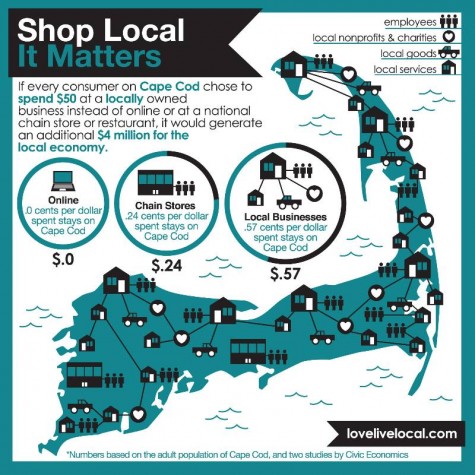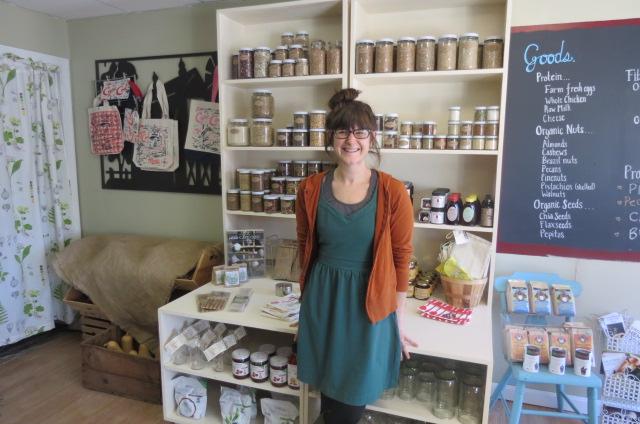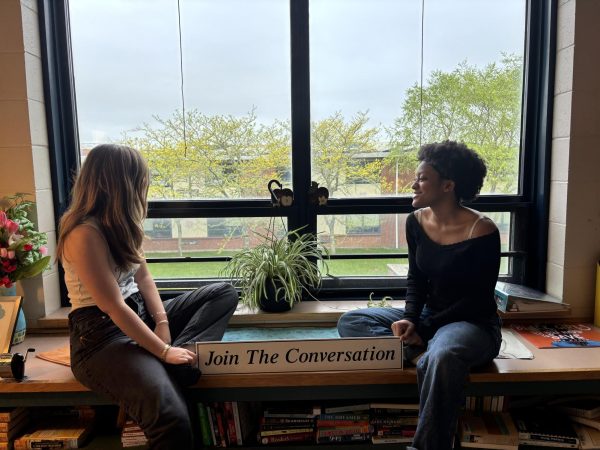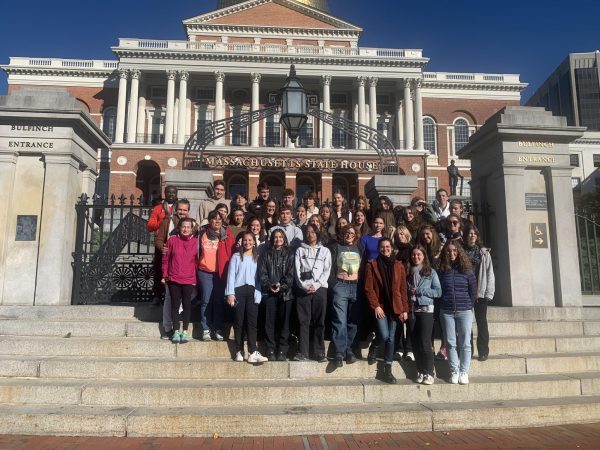Livin’ La Vida Local
Shop Locally to Sustain a Healthier Lifestyle
Photo by Liam Russo
Nicole Cormier of FarmFare Market sits in front of shelves of locally grown herbs, spices and jams at her store in Sandwich
Strolling through the grocery store today, the modern health crazes and cleanses tend to tempt customers to venture down the organic aisle for a week or two, but eventually, consumers are scared off by high prices and taste. But does it make a difference if these products are made in our own backyard from people at our churches, rec programs and sports teams?
The term locavore can be thought of as someone who eats only locally-grown food to support sustainability and eco-consciousness in the food market. But as farmers’ markets are not as abundant on Cape as they are in Massachusetts, the term has a broader meaning to encompass not only food but locally-made clothes and gifts.
“Shopping locally is important for any local community,” said Amanda Converse, owner of Shift Eco-Boutique in Hyannis. Many of her products are either produced or purchased from local vendors on the Cape. Converse has also helped create the website lovelivelocal.com which highlights the work of locally-made products Cape-wide from granola bars to soap. “As a tourist community, we need interesting and unique places to go to; it adds to the experience, she added.
Coonamesset Farm of Falmouth is just one of the many farmers’ markets on the Cape that houses all locally-grown fruit and vegetable products for customers on the Cape. However, like many local options, it is only open in the spring through fall months.
For students trying to follow the local trend, it can become a bit tricky as they aren’t the primary purchasers at the grocery store. “I’ve always tried to add local or organic products into my lunch, but many times it becomes too expensive or too hard to find every day, said Ally Iseman, senior at BHS. “It’s one thing to eat healthy, but eating only locally is a whole different struggle,” she added.
But for those in charge of putting food on the table, there are ways of working around expenses. “I believe someone on a budget is the perfect fit for becoming a locavore. Paying for nutrients versus just calories is the ultimate score,” said Nicole Cormier, a certified dietitian and owner of Farm Fare Market in Sandwich which sells locally grown crops from farmers throughout Cape Cod. “I am passionate about teaching people how to play an active role in improving their whole health by developing new relationships with food. And, I believe in the power of connecting farmers and consumers to create a more educated community,” she added.

Researching more in-depth on the science behind the effects of diets and diseases and the importance of the nutrients we put in our bodies, Maggie Tierno, a senior at BHS, has created her own independent study with science teacher, Mrs. Vallerie Lahteine.“I’ve connected with many local and organic farmers to ask about the benefits to the trend and personally, I’ve become really involved with the locavore movement,” said Tierno.
Supporting locally made businesses doesn’t always have to mean through farmer’s markets and restaurants. In fact, many people never go back to commercial soap once they experience the sensation of hand-made soap. “It is truly a different experience to use handmade skincare products,” said Ann Miller owner of Summer House Natural Soaps which houses soaps, shampoos and lotions that are made within the store walls.
The idea of being a locavore may be a hard concept to grasp initially, especially for students. But becoming a locavore doesn’t necessarily have to follow the strict dictionary definition. “Without local restaurants, retail and cultural attractions, Cape Cod would be just like everywhere else,” said Converse.
Your donation will support the student journalists of Barnstable High School. Your contribution will allow us to purchase equipment and cover our annual website hosting costs.







